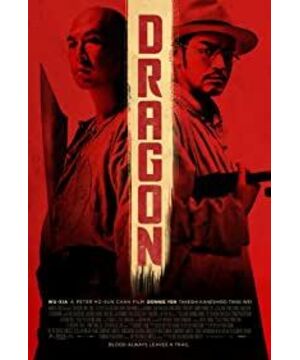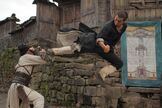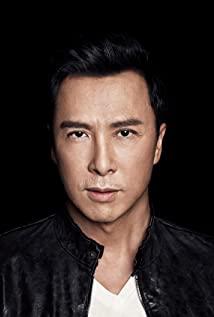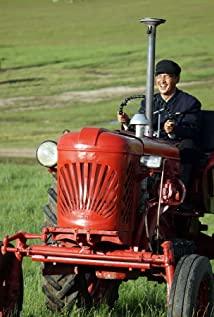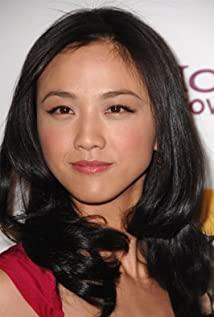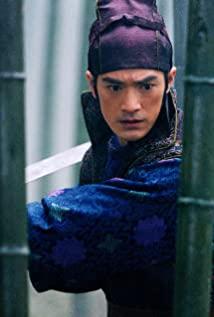Since "wuxia" focuses on "martial arts", the important point of "wuxia" is that the martial arts of this warrior are not powerful. There is a man named Dan Qingsheng in "Swordsman". He has a good painting. He lost a fight with Linghu Chong. Although he was depressed for a while, he was naive in the end. This Dan Qingsheng is literate, famous in all corners of the world, and bold-minded. He can be regarded as a person with both civil and military skills, but I haven't heard that many people like him. If he is a supporting role, then the sweeping monk in "Dragon and Babu" may have less playing time, but he is talked about by everyone, that is because he played two great masters looking for teeth. Therefore, when it comes to "martial arts", don't start talking about culture. In the end, Dan Qingsheng is still not good enough to fight.
In "Flying Fox Story", there is another person named Ke Zirong who uses hidden weapons. He is fully equipped. When he goes into battle with a bag full of hidden weapons, he throws darts and broadcasts live broadcasts to inform the victim of the position of the darts. Mixing one or two falsehoods makes the beaten confused and confused. This head has good intentions, rigorous techniques, and scientific moves, so he can fight, right? NONONO, Mr. Jin Yong said that the real master should be like Zhao Banshan, dressed in a long gown, elegant, and like Liu Qian, who made a hidden weapon out of nothing, and threw it out in a different way. He came from the Western Regions with Chen Jialuo again, and he expected that he could understand Uyghur dialect. In a word, Ke Zirong has no culture! Then the question arises, in the world of martial arts, what is the criterion for judging whether the martial arts are powerful or not?
I think this kind of martial arts realm should be viewed from two aspects. First of all, this state is not a simple brute force, but a kind of "Tao", which is the great wisdom of metaphysics, not the clever tricks. Guo Jing is honest and honest, but his reaction is slow, but he can become a peerless master. That is because he is simple and straightforward, and he can acquire great wisdom, which means that the humble is better than the clever; Feng Qingyang thinks that Linghu Chong is a malleable talent, and the key is not him. He can run 100 meters in 11 seconds, but he has a unique worldview; is there anyone who has become a master just by practicing skills? Yes, that was Jiumazhi, but in the end his meridians were disordered - it wasn't that there was a problem with his body, but his outlook on life and values were extremely incorrect, which was very bad in the world of martial arts. In the martial arts world, the older people tend to be more powerful, this is not a metaphor for the power structure, but the accumulation of wisdom over time. So we say that in addition to martial arts, there is also martial arts.
But on the other hand, this "Tao" must be carried by matter and realized by the body. Even if you are as wealthy as Qian Zhongshu, you cannot become a martial arts master. There is a saying by Yao Ming: "The body of an athlete is an extension of the mind." This sentence is also applicable to the martial arts athletes of all dynasties in my country. The so-called martial arts (to borrow the words of Mr. Cui Weiping) must "use the body to measure the scale of the world". Starting from the material world, the ultimate goal is to acquire great wisdom. Therefore, if you can reach the ultimate state of wisdom like Lao Tzu, use Everyone is allowed to use magic.
The combination of the two is the most innocent and lovely ideal of the Chinese people. The so-called "self-cultivation, balancing the family, governing the country and the world", from the inside out, the unity of man and nature, and the high unity of spirit and material. Therefore, in the world of martial arts, the criterion for judging whether the martial arts is powerful or not is the degree to which the knights carry the Tao with their martial arts.
This kind of thinking determines the form of martial arts films. From meaning to shape, fighting in martial arts films does not have to be realistic, fierce, or bloody, but it must be beautiful and aesthetic, because people always vaguely feel that the ultimate truth is beautiful. This is the uniqueness of "wuxia" as a special type of "play".
I have two interests in watching martial arts films. One is that knights have high kung fu and play well; Beautiful first. Action design and editing are the most important carriers of this kind of beauty, but they are not limited to this. The artistic conception of the picture and the ethereal nature of the soundtrack are also worthy of attention. What is really important is the realm. This realm can determine the direction of the martial arts story, and the small can determine the outcome of a fight. The ideal situation is that this realm is integrated and runs through the whole film. First of all, it determines the theme of the movie. Next, decide on the shape of the action. Many times this tendency is not obvious. For example, in "New Dragon Inn", the butcher cuts off the eunuch's meat, relying on real skills, and there is no philosophical thought to decide the outcome of the battle. But it should also be seen that, no matter whether a martial arts film talks about "Tao" or not, it always seems feasible for you to place a god-level character like a sweeping monk in most martial arts films. Fantasy tendencies always exist. Many martial arts films do not "discuss Tao" at the macro level, but at the micro level, the profound influence of "Dao" can be seen. Before the two knights start to fight, they always have to put on various mysterious and beautiful shapes. From a technical point of view, what is the use of this fixed position for the outcome? But it must be placed, which is the uniqueness of martial arts films in form. In fact, this kind of "dao" at the micro level is exactly the housekeeping skill of martial arts films. When watching martial arts films, what you see is this kind of "fight", a microscopic, "good-looking" "fight". The set pose, a universal experience that works, is not enough. If you want to be "good-looking", you need more "Dao" at the micro level. This is where the Eight Immortals cross the sea and show their magical powers. If a logic can be reflected in the stretching of the limbs, and the internal reasons for victory and defeat can be shown through actions and pictures, then this film has become a martial arts film. What I want to see is this dynamic process, which is the same as watching Messi excel or Kobe dunking. It is all about the beauty of actions under certain rules. As for the story and themes, it is enough to pass. The "Tao" at the macro level is more like a kind of BONUS. Just like Ross said in "Friends", this is also very good, but it is not the reason why we buy tickets. However, it is easier said than done to use microscopic actions to show the macroscopic "Dao". This is simply a task that cannot be fully realized. Therefore, there are many macroscopic Taoisms, but there must be more. It is clear that we have to rely on experts from outside the world to give lectures to everyone, so we can overcome the strong with the weak and overcome the strong with softness. This kind of big killer cannot be used casually. Do you think the floor sweeper really wants to live in seclusion? He had to come out to save the scene, and he had to show less. If everyone who appeared on the scene was flying like a sweeper, you The essence of the "Tao" has been revealed, and the audience will call it fake. Smart directors promise not to use big killers first, but Zhang Yimou doesn't understand this, and he'll do it with you as soon as he comes out. He's still talking about a stinky totalitarian rule, so there's a freak like "Hero". Can't be saved. And "House of Flying Daggers" was saved, and it was clear in several fight scenes that it lost to Zhang Yimou's vulgar aesthetics. It came out of the brothel, no wonder.
Let's talk fun. When I see Jin Yong, my favorites are "Eight Dragons", "Eternal Dragon Sword" and "Flying Fox Story". Because of the large number of people, the six major factions besieged Guangmingding, and the head of the world scrambled for the Jade Dragon Cup, which was very lively. In "The Swordsman", I was a little disappointed when I saw that there were so many people fighting in the back, but in "The Legend of the Condor Heroes", Ouyang Feng and Guo Huang were having a lot of trouble, so they lost interest. I just like to watch a group of heroes rise up and compete with each other. I used to feel very strange about this tendency of mine. After careful analysis, I felt that it was still related to "Tao". There are many characters, each showing their magical powers, and the rivers and lakes are vast, which is a metaphor for the breadth and depth of wisdom. There are hermits above the masters, and the building outside the green hill outside the mountain feels open-minded and free. Even if the sweeper only shows one side, the whole dimension changes.
Some people summed up Jin Yong, saying that it was from complicated moves, to no move to win, and finally Wei Xiaobao did not have martial arts to conquer the world, and it seemed to be getting better and better. In my opinion, it is actually a process of gradual decline of "wisdom". The heroes of the Song and Yuan Dynasties are all out, they seem complicated, but they are all classic books, which is called prosperity; in the Ming and Wanli, the ancient style still exists, but it has been divided into arts and sciences, and all of them stick to their moves. Taking advantage of no tricks, when he arrives at Wei Xiaobao, he is already a rogue in the market, intrigues, and political struggles. There is no "Tao", and it is not bad to talk about sincerity and arrogance.
Finally got to the point - I'm trying to write a review of "Wu Xia". The space for martial arts is getting narrower and narrower, and after the Republic of China, it almost disappeared. When the pond is shallow, fish can only go ashore, so "Martial Arts" has to rely on science. Although Chinese medicine is also suspected of "pseudoscience", it does not matter to the movie. I can hear Mr. Le Jia's personality color theory, the parallel space of foreigners, and the dissipation theory. Listen to Chen Kexin's talk about "vagus nerve". Chen Kexin was ridiculed as "scientific martial arts", and in my opinion there is no lack of useful attempts. Items such as scalpels and terms such as acceleration are actually striving for the rationality of the existence of martial arts. In the time limit of martial arts in the Republic of China, it seems a little new. Xu Baijiu graded the aura, saying that the tenth-level aura should not be approached by mosquitoes and flies, and that steel knives should not enter. He said that if you kill too many people, your eyes will glow green, and the yin qi is overwhelming. He also said that acupuncture points ultimately affect a person's character. It is the principle of being human, and it also means the unity of man and nature. The Xuanlongmen formation of Yuhua Dengxian can’t be set up, and it’s still okay to talk about the truth of being a human being, and this principle of being a human being comes from the practice of internal force, using martial arts to carry the Tao, and taking the path of martial arts – the so-called “decline of wisdom” "It's just a delusion, going ashore is natural selection, survival of the fittest.
From the plot point of view, Tang Long's incognito is a typical theme of reclusion in martial arts films, but the reason for his reclusion is more modern, and there is a shadow of "crime and punishment". Seventy-two Disha doesn't need to rely on his martial arts. If he wants to quit, he will no longer have any threat since he abandons his martial arts. Can he cut off his arms? Since the abolition of martial arts, we cannot use martial arts to carry the Tao, the martial arts can be lost, and the Tao cannot be lost, so the way out is to rely on fighting, which is also the reason why the hidden return cannot be achieved in all martial arts films.
With this "playing" word, "Martial Arts" has actually been half successful. The name Xu Baijiu seems to mean "those who travel a hundred miles are half ninety", indicating that he has not yet reached the realm of tact. And in the film, he does change. It's a pity that this movie, like the name, is only half done. The contradiction between Xu Baili and Tang Long is a battle of "Tao", and the contradiction between Seventy-two Disha and Tang Long is a battle of "righteousness", and both can be the theme. Since Chen Kexin named the film "Martial Arts", the "Tao" dispute seems to be the backbone of the plot. From this point of view, the second half of "Wu Xia" is indistinguishable and ambiguous. He came up with such a bunch of theories without using it, so it's no wonder that everyone thinks he's a gimmick.
View more about Dragon reviews


